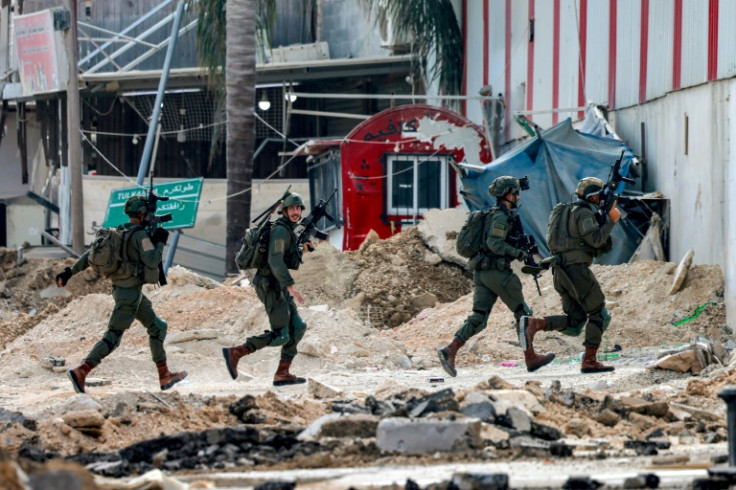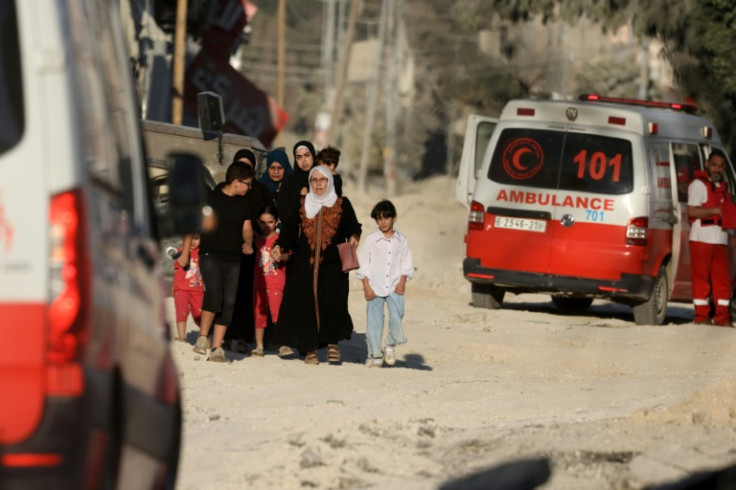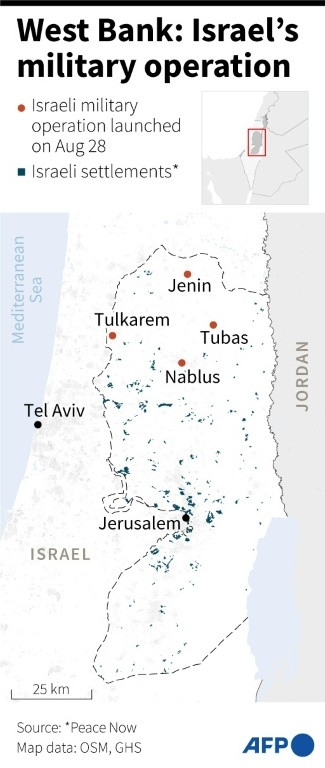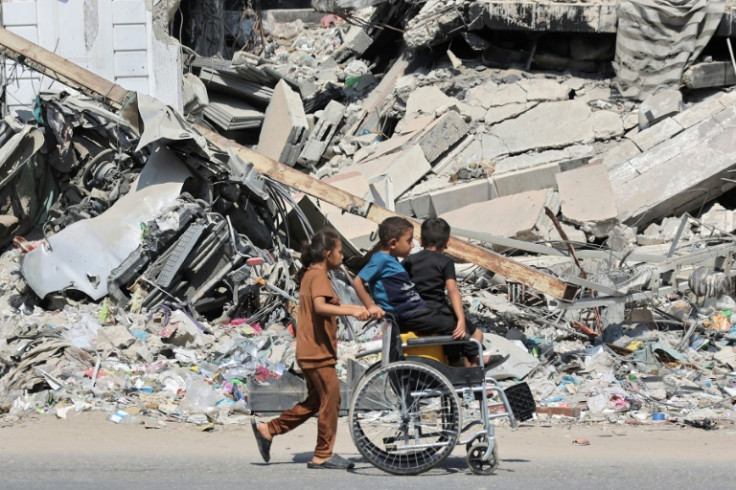Death Toll Rises As Israeli West Bank Raids Enter Second Day

The death toll climbed Thursday as Israel pressed a large-scale military operation in the occupied West Bank for a second day, despite UN concerns it is "fuelling an already explosive situation".
The operation was launched as violence raged on in the other main Palestinian territory, the Gaza Strip, which has been devastated by war since Hamas's unprecedented October 7 attacks.
Israel began coordinated raids in the northern West Bank cities of Jenin, Tubas and Tulkarem early on Wednesday, in what the military called a "counter-terrorism" operation.
Columns of Israeli armored vehicles backed by troops and warplanes were sent in before soldiers encircled refugee camps in Tubas and Tulkarem, as well as Jenin, and exchanged fire with Palestinian militants.
The army said it killed five militants in Tulkarem during the latest operations in the West Bank on Thursday, bringing the overall toll to 14 dead.
"Following exchanges of fire, the forces eliminated five terrorists who had hidden inside a mosque" in Tulkarem, the military said in a statement.
Palestinian militant group Islamic Jihad confirmed the death of Muhammad Jabber, also known as Abu Shujaa, its commander in the Nur Shams refugee camp in Tulkarem.
The violence has caused significant destruction, especially in Tulkarem, whose governor described the raids as "unprecedented" and a "dangerous signal".
AFPTV footage showed bulldozers ripping up the asphalt from streets in the city as a precaution against concealed explosives. Authorities reported widespread damage to infrastructure, including to water and sewage networks.
The Palestinian health ministry said 12 Palestinians were killed on the first day of the operation.
Witnesses said the Israeli forces had withdrawn from Al-Farra refugee camp in Tubas where several Palestinians were killed on Wednesday.
An AFP photographer said clashes were still taking place in Jenin, where a drone was seen flying overhead.
Another AFP journalist said Israeli soldiers were still operating in Tulkarem.
The Palestinian Prisoners' Club said at least 45 people had been arrested since the start of the Israeli operation in the northern West Bank.
The United Nations expressed concern over the Israeli operations in the West Bank.
UN chief Antonio Guterres, in a statement, called for an "immediate cessation of these operations".
Guterres condemned the use of air strikes on civilian targets and "the loss of lives, including of children".
"These dangerous developments are fuelling an already explosive situation in the occupied West Bank and further undermining the Palestinian Authority," the UN statement said.
Palestinian president Mahmud Abbas on Wednesday cut short a visit to Saudi Arabia to address the crisis, while Jordan's King Abdullah II appealed for a ceasefire in Gaza to stop the spread of violence.
Since the war began, at least 637 Palestinians have been killed in the West Bank by Israeli troops or settlers, according to the United Nations.
Nineteen Israelis, including soldiers, have been killed in Palestinian attacks or during army operations, according to Israeli official figures.
Violence also raged in Gaza, where the Israeli military on Thursday said it "eliminated dozens" of militants during the past day in close-quarters combat and air strikes.
The army said one of those killed in the Khan Yunis area was a militant who took part in the October 7 attack.
The war in Gaza erupted after Hamas-led militants attacked Israel on October 7, resulting in the deaths of 1,199 people, mostly civilians, according to an AFP tally based on Israeli official figures.
Militants also seized 251 people, 103 of whom are still captive in Gaza, including 33 the Israeli military says are dead.
Israel's retaliatory military campaign has killed at least 40,602 people in Gaza, according to the Hamas-run territory's health ministry. The UN rights office says most of the dead are women and children.
The war has devastated Gaza and triggered a humanitarian crisis.
"It's just catastrophic," said Louise Wateridge, a spokesperson for the UN agency for Palestine refugees, or UNRWA.
"What we're seeing now is families, mothers, children dragging their belongings," she said on social media platform X.
"There's very limited access to any kind of vehicles for this kind of displacement now, and people just don't know where to go."




© Copyright AFP 2025. All rights reserved.





















